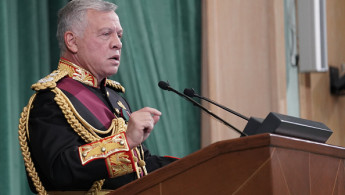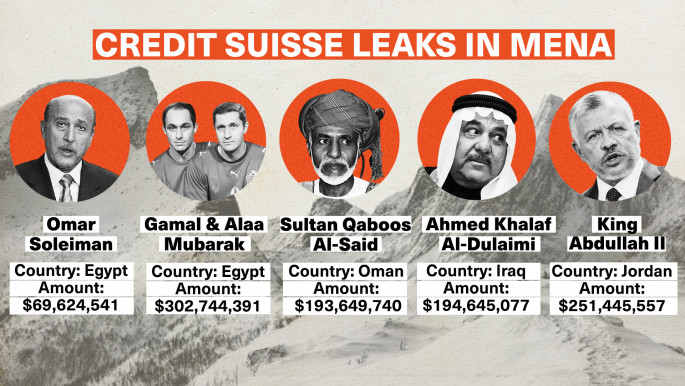Jordan's King Abdullah stashed hundreds of millions in Credit Suisse bank, report reveals
Jordan's King Abdullah II and his wife Queen Rania had at least $245 million stashed in a Swiss bank account, leaked documents revealed late on Sunday.
The king owned at least six accounts in the Swiss bank "Credit Suisse", while the queen owned another. Just one of those accounts contained $245 million, while the sums in the other accounts were unknown.
Lawyers for the king and queen said that the wealth was legitimately earned in compliance with Jordanian law and that most of it derived from Abdullah’s father, the late King Hussein.
Information about the monarch’s personal fortune is hard to come by; citizens who have questioned the extent of his wealth have been jailed in the past.
To many, the Credit Suisse leak points to a king whose lavish lifestyle contrasts starkly with the impoverished people he rules over and where IMF-sponsored austerity measures have recently been enacted, leading to further misery for Jordan's poorest.
The country is also heavily reliant on European and US aid, with Gulf states pledging a $2.5 billion bail out in 2018.
The revelations were part of data on 18,000 accounts held in Credit Suisse that a whistle-blower leaked to a German newspaper. Other account leaders include the children of Egypt's deposed dictator Hosni Mubarak, and spy chiefs from at least three countries.
Swiss banking laws bestow utmost secrecy on account holders, and the country has long been a haven for Middle Eastern autocrats and oligopolists.
The leaks come just six months after the "Pandora Papers" showed that the king had spent over $100 million on luxury properties in Malibu and London. At the time, the king's lawyers denied any wrongdoing and said the reports were a part of an "international campaign" against Jordan.
There was little public reaction to the Pandora Papers in Jordan, and local press was largely prevented from or avoided reporting on the leaks.
Jordan’s per-capita income was just over $4,000 in 2020 and unemployment reached almost a quarter of the labour force in 2021. Public displays of dissent in the country are sporadic, muzzled by the heavy hand of Jordanian security forces.
Still, complaints about the declining living standards in Jordan top the list of growing grievances.
In early February, a group of protesters just outside the capital city threatened to commit mass suicide if they were not be provided with jobs. The hashtag #JordanIsNotWell consistently tops the trending list on Twitter in the country.
Jordan's most famous spy chief – Sa'ad Kheir – inspiring the Jordanian spymaster in the 2008 film "Body of Lies", was also shown to have had at least $21.5 million in Credit Suisse.
The source of his money is unknown, but the Organized Crime and Corruption Reporting Project (OCCRP) said that allegations of illegal oil trading had dogged Kheir after his tenure.






 Follow the Middle East's top stories in English at The New Arab on Google News
Follow the Middle East's top stories in English at The New Arab on Google News


